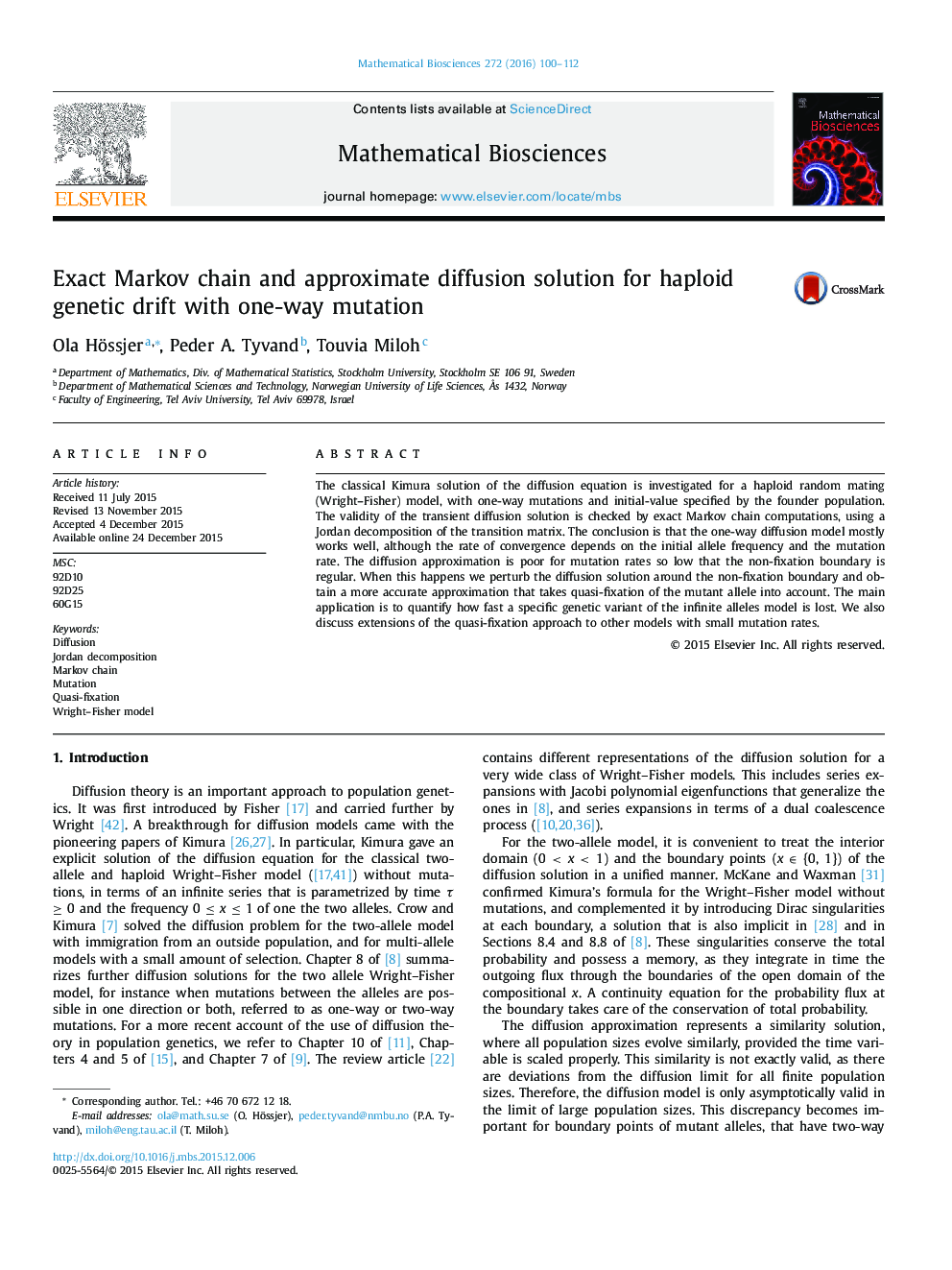| Article ID | Journal | Published Year | Pages | File Type |
|---|---|---|---|---|
| 4499914 | Mathematical Biosciences | 2016 | 13 Pages |
•The haploid Wright–Fisher model with one-way mutation is studied.•The accuracy of the diffusion solution is compared in relation to the exact Markov chain.•A Jordan decomposition of the Markov chain is analyzed.•A quasi-fixation solution improves performance for low mutation rates.•Quasi-fixation is discussed for more general population genetic models.
The classical Kimura solution of the diffusion equation is investigated for a haploid random mating (Wright–Fisher) model, with one-way mutations and initial-value specified by the founder population. The validity of the transient diffusion solution is checked by exact Markov chain computations, using a Jordan decomposition of the transition matrix. The conclusion is that the one-way diffusion model mostly works well, although the rate of convergence depends on the initial allele frequency and the mutation rate. The diffusion approximation is poor for mutation rates so low that the non-fixation boundary is regular. When this happens we perturb the diffusion solution around the non-fixation boundary and obtain a more accurate approximation that takes quasi-fixation of the mutant allele into account. The main application is to quantify how fast a specific genetic variant of the infinite alleles model is lost. We also discuss extensions of the quasi-fixation approach to other models with small mutation rates.
